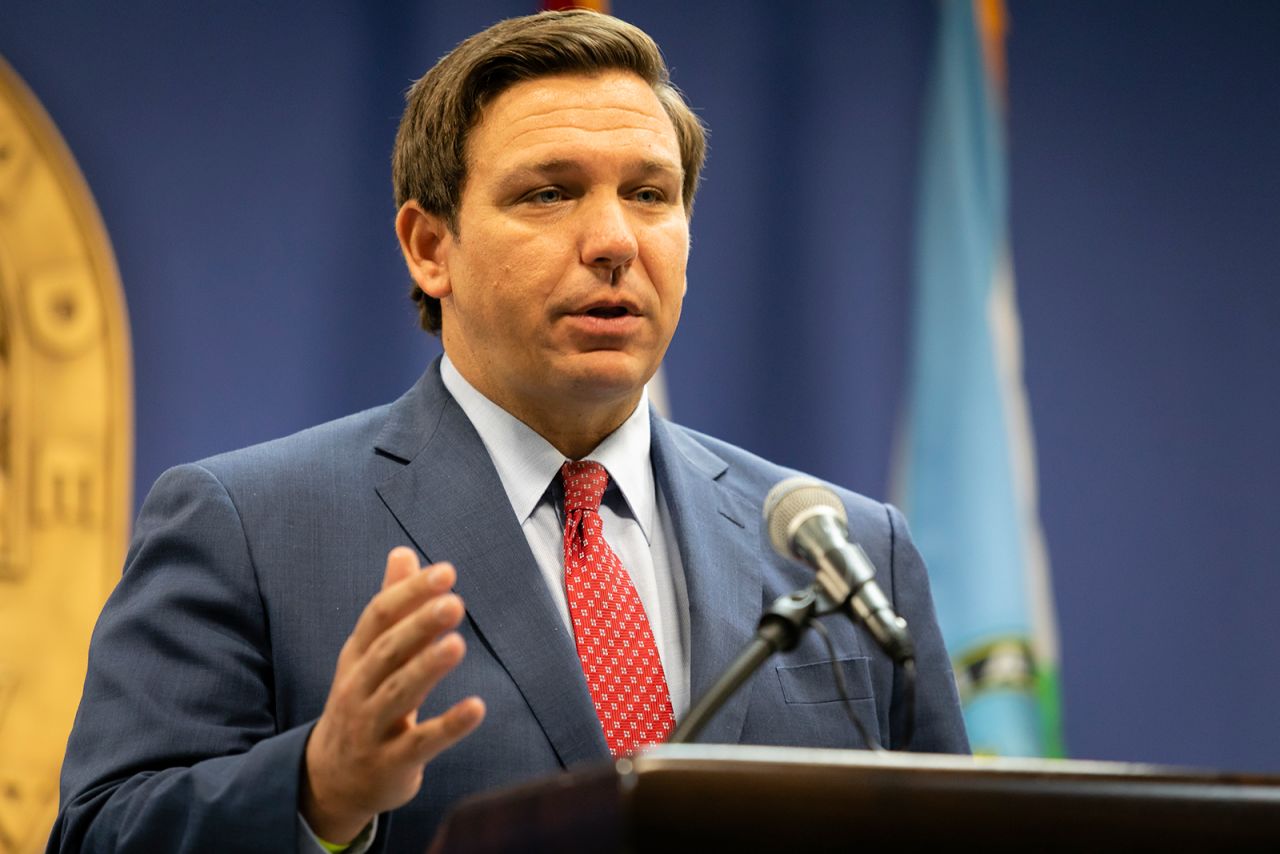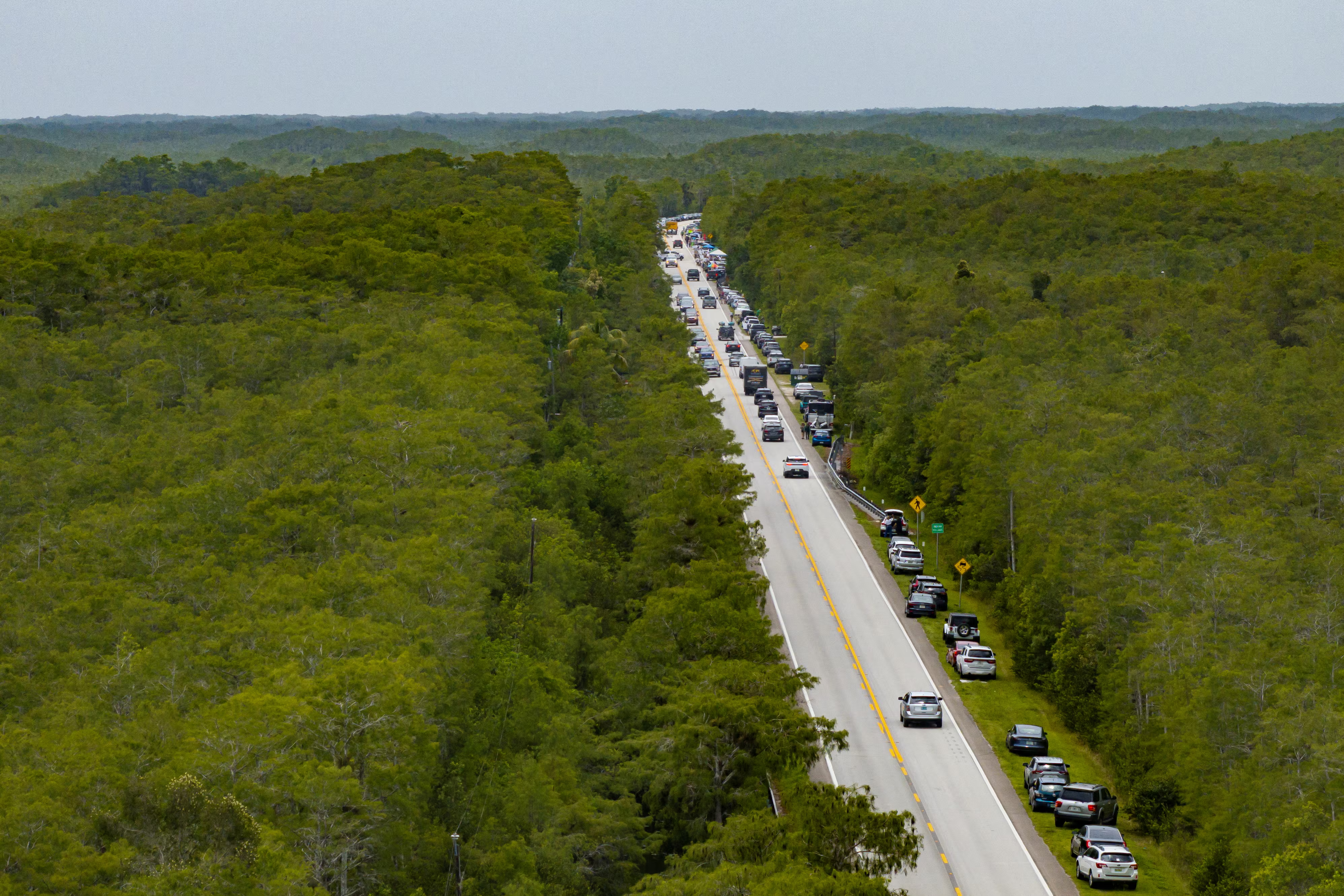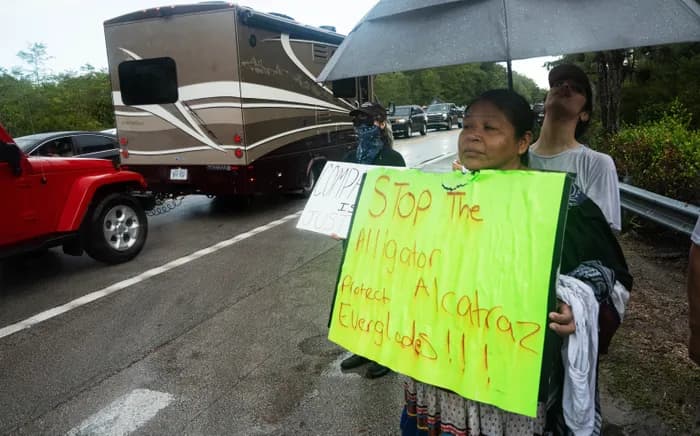The DeSantis administration has unleashed a grim reality inside the so-called "Alligator Alcatraz"—a new migrant detention facility that’s anything but humane. Erected in the heart of the Florida Everglades, this facility, which could hold up to 5,000 undocumented migrants, is surrounded by barbed wire and chain-link fencing. The juxtaposition of a detention camp amid a delicate ecosystem raises urgent questions about environmental justice and human rights.
Inside the Detention Facility
As reported by New York Post, the facility features rows of two-tier bunk beds encased in large cells, reminiscent of a prison rather than a refuge. Portable restrooms and showers dot the landscape, while the glaring presence of over 200 security personnel and 28,000 feet of barbed wire sends a chilling message about the treatment of those seeking asylum.
Environmental Concerns Amplified
Located just east of Big Cypress National Preserve, the facility"s placement raises significant environmental concerns. Surrounded by wetlands that are home to alligators and pythons, the construction of this camp threatens not just human lives but also the delicate balance of the local ecosystem. The environmental implications are profound, as the Everglades serve as a critical habitat that supports diverse species and protects against climate change impacts.
Public-Private Partnerships Raise Red Flags
According to FEMA guidelines, the involvement of over 13 private vendors in constructing this facility in just eight days raises questions about transparency and accountability. Such rapid construction, especially under emergency powers wielded by the state, often circumvents necessary environmental assessments and community input, undermining both ethical governance and environmental justice.
\n\n
June 26, 2020 coronavirus news | CNN
Financial Backing Fuels Controversy
The $650 million allocated from FEMA for this detention effort is a glaring misuse of taxpayer funds, as noted by various critics. This vast sum could be redirected towards sustainable housing initiatives or community services that address the root causes of migration, rather than perpetuating a cycle of detainment and marginalization. The prioritization of punitive measures over humanitarian support reflects a deeply entrenched systemic bias against marginalized groups.
Voices from the Ground
While the DeSantis administration touts the facility"s amenities—hot meals, medical care, and recreational services—these provisions do little to mitigate the psychological trauma of incarceration. Advocacy groups are calling for immediate action, emphasizing that the voices of those detained must be heard. As reported by NPR, many detainees are fleeing violence and instability, yet they are met with a system designed to isolate and punish rather than protect and support.
\n\n
As it happened: Trump visits Alligator Alcatraz detention ...
Impact on Indigenous Communities
The proximity of "Alligator Alcatraz" to Miccosukee and Seminole tribal lands raises additional concerns about the infringement of Indigenous rights. The construction of this facility on lands historically occupied by these tribes reflects a disregard for their sovereignty and cultural heritage. The potential for environmental degradation also threatens traditional ways of life that rely on the Everglades’ natural resources.
Florida"s approach to immigration is emblematic of a broader national trend that prioritizes enforcement over compassion, often at the expense of vulnerable populations and the environment. The implications of such policies extend far beyond the confines of barbed wire, touching on issues of social justice, human rights, and environmental integrity.

![[Video] Federal officers deploy sting balls and flash grenades at Whipple Building](/_next/image?url=%2Fapi%2Fimage%2Fthumbnails%2Fthumbnail-1768340555229-vhfcc-thumbnail.jpg&w=3840&q=75)
![[Video] Crowd-control weapons used in Minneapolis as anti-ICE protesters attack police vehicle](/_next/image?url=%2Fapi%2Fimage%2Fthumbnails%2Fthumbnail-1768336302231-akxf7s-thumbnail.jpg&w=3840&q=75)

![[Video] Protests erupt in Minneapolis after ICE detains teenager, multiple arrests made](/_next/image?url=%2Fapi%2Fimage%2Fthumbnails%2Fthumbnail-1768331835371-z9ylqg-thumbnail.jpg&w=3840&q=75)


![[Video] Gunfire between Iraqi security forces and Sadr militias in Baghdad](/_next/image?url=%2Fapi%2Fimage%2Fthumbnails%2Fthumbnail-1768343508874-4redb-thumbnail.jpg&w=3840&q=75)
